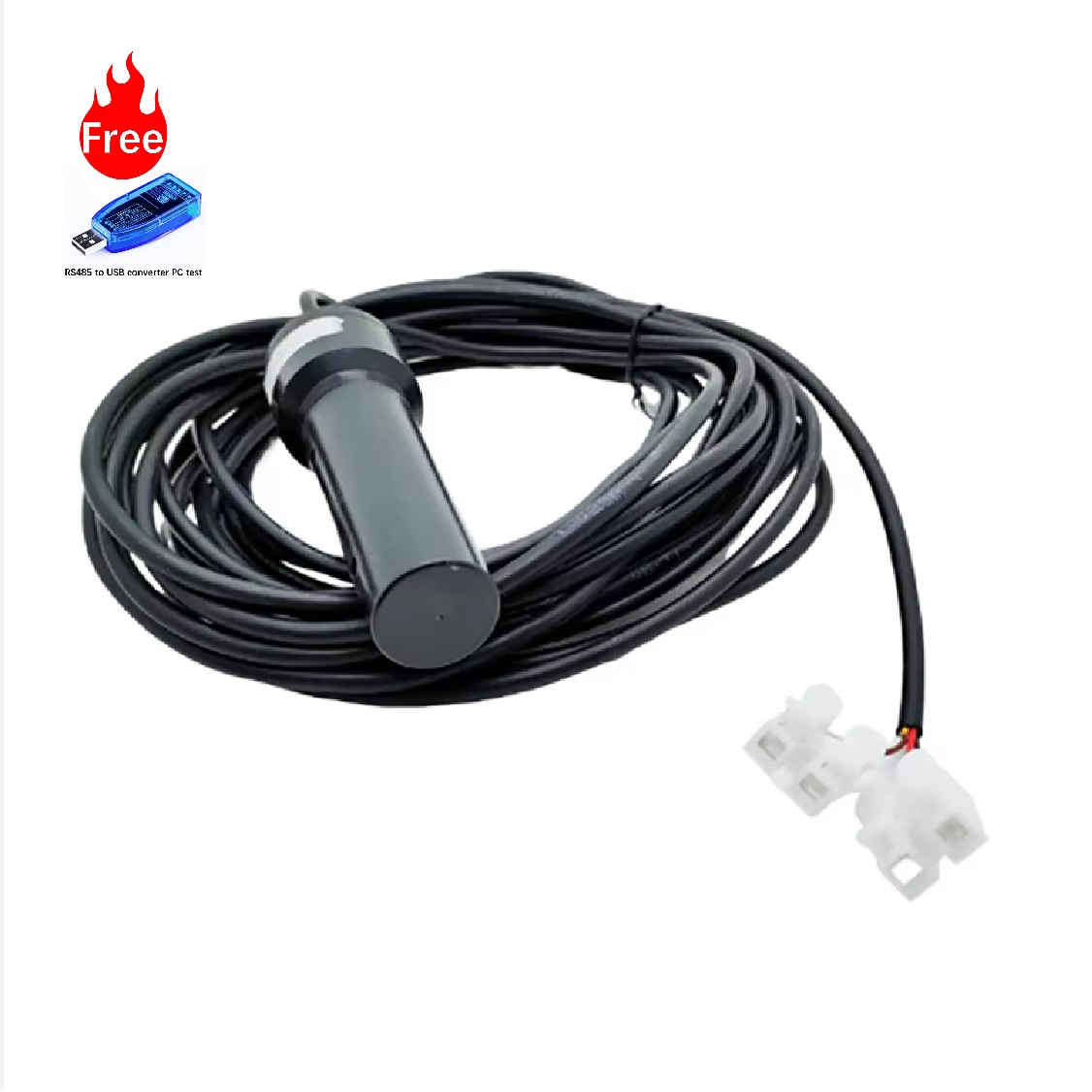Industry Focus
In the realm of global industrial process control and water treatment, the precision and real-time monitoring of water quality are becoming increasingly vital. Among the key devices for monitoring dissolved carbon dioxide (CO₂) levels in water, water quality CO₂ sensors are stepping into the spotlight. With their unique technological advantages, these sensors serve as “intelligent sentinels” across various industrial scenarios, providing robust data support to enhance production efficiency, ensure equipment safety, and optimize product quality.
Core Technological Features: Why They Are Indispensable?
Unlike traditional indirect measurement methods, modern water quality CO₂ sensors, particularly those based on NDIR (non-dispersive infrared) technology, exhibit outstanding application characteristics:
-
High Precision and Selectivity: NDIR technology measures concentration by detecting the absorption of specific infrared wavelengths by CO₂ molecules, showing minimal interference from other ions or gases in the water, thus ensuring highly accurate and reliable data and avoiding misjudgments.
-
Real-Time Online Monitoring: The sensors can achieve uninterrupted 24/7 measurements and provide real-time data output. This transforms the delayed sampling and analysis mode of traditional laboratory methods, enabling engineers to promptly grasp water quality dynamics for immediate intervention.
-
Exceptional Stability and Low Maintenance: Advanced sensor design and robust materials allow them to operate stably in harsh industrial environments for extended periods, significantly reducing calibration frequency and maintenance costs while enhancing overall operational efficiency.
-
Seamless Integration and Intelligence: Standardized signal outputs (e.g., 4-20mA, Modbus, etc.) facilitate easy integration into existing PLCs (Programmable Logic Controllers), DCSs (Distributed Control Systems), or cloud platforms, laying the groundwork for constructing digital twins and achieving intelligent closed-loop control.
Diverse Application Scenarios: Deep in the Veins of Industry
The application of water quality CO₂ sensors has penetrated multiple critical areas of industry, with some typical scenarios including:
Scenario 1: Pharmaceuticals and Biopharmaceutical Fermentation – Ensuring the Purity of the “Lifeline”
In the fermentation processes of antibiotics and vaccines, dissolved CO₂ is a key parameter influencing microbial cell growth and metabolite yield. Excessive concentrations can inhibit cell activity, leading to reduced yields. By using online CO₂ sensors, engineers can precisely control airflow and stirring rates, maintaining CO₂ concentrations within optimal ranges, thus significantly improving product yield and consistency, ensuring drug quality.
Scenario 2: Beverage and Beer Brewing – Preserving Flavor on the “Tip of the Tongue”
In carbonated beverage and beer production, CO₂ is essential for creating unique flavors and bubbles. As water is the primary raw material, its own CO₂ content directly affects the efficiency of carbonation and the final product’s fizziness. Real-time monitoring and precise control of CO₂ levels in the source water are critical for maintaining consistent taste and fine bubbles in each bottle of beverage.
Scenario 3: Industrial Water Treatment and Corrosion Control – Extending the Lifespan of Pipe Systems
In systems such as cooling water and boiler feed water, dissolved CO₂ can form carbonic acid, reducing water pH and exacerbating corrosion of metal pipes and equipment. By installing CO₂ sensors, the system can be linked to dosing devices that automatically introduce corrosion inhibitors or alkaline solutions, effectively neutralizing corrosive CO₂, extending equipment lifespan, and preventing unplanned downtime and safety incidents due to pipeline leaks.
Scenario 4: Aquaculture – Creating a Healthy “Underwater Habitat”
In high-density aquaculture facilities or fish ponds, biological respiration releases large amounts of CO₂. Elevated levels of dissolved CO₂ can lead to water acidification, affecting aquatic organisms’ immunity and growth rates. Real-time monitoring of CO₂ concentration and timely activation of aerators or oxygenation devices can create a healthy and stable growth environment for aquaculture species, improving farming success rates.
Industry Observations:
“Water quality CO₂ sensors are an important data touchpoint for the realization of industrial intelligence in process industries. They provide not just individual readings, but also the decision-making basis for process optimization, predictive maintenance, and meticulous management. With continuous advancements in sensor technology, it is expected that their application will expand from focused industries into more frontier fields such as environmental monitoring and ultra-pure water preparation for semiconductors.”
We Can Also Provide a Variety of Solutions For:
- Handheld Meter for Multi-Parameter Water Quality
- Floating Buoy System for Multi-Parameter Water Quality
- Automatic Cleaning Brush for Multi-Parameter Water Sensors
- Complete Set of Servers and Software Wireless Module, supporting RS485 GPRS / 4G / WIFI / LORA / LORAWAN
For more water sensor information, please contact Honde Technology Co., Ltd.
Email: info@hondetech.com
Company Website: www.hondetechco.com
Tel: +86-15210548582
Post time: Oct-20-2025


